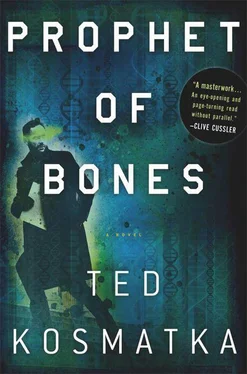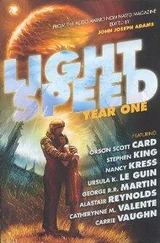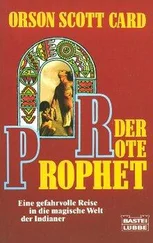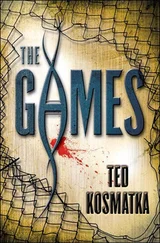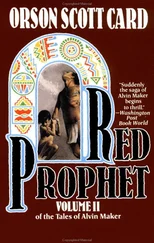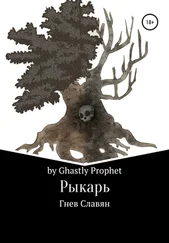“What people?”
“Official people. Unpleasant people. Indonesia is suddenly very interested.”
“And I’m the outside tech in question?”
“The very same.”
“I take it this interest is a bad thing.”
“Interest from officials always is.”
“Is it a question of permission?”
“We have all the right permits, of course, from the Ministry of Culture and Social Politics. And more permits from ARKENAS and the Department of Education—a mountain of permits, let me tell you, and half of them redundant. In Flores, bureaucracy is raised to the level of a martial art. Even our permits have permits, and all of it costs money. And worse than that, it costs time . Our visas come straight from the Indonesian Academy of Sciences. But maybe none of that will matter now.”
“Why?”
“Because certain people might decide it doesn’t matter. That’s all it takes.”
“Are you worried they’ll shut down the dig?”
Gavin smiled. He remained silent for a while and sipped his coffee. Paul thought he wasn’t going to answer, but then Gavin asked, “Have you studied theology?”
“Why?”
“I’ve long been fascinated by the figure of Abraham. You’re familiar with Abraham?”
“Of course,” Paul said, unsure where this was going.
“From this one otherwise ordinary sheepherder stems the entire natural history of monotheism. He’s at the foundation of all three Abrahamic faiths—Judaism, Christianity, and Islam. When Jews, Christians, and Muslims get on their knees for their one true God, it is to Abraham’s God they pray.” Gavin closed his eyes. “And still there is such fighting over steeples.”
Around them, Flores bustled on. A small gray van blared its horn at a swerving motorbike.
“What does this have to do with the dig?”
“The word ‘prophet’ traces back to the original Greek word prophetes. In Hebrew, though, the word is nabi . I think Abraham Heschel said it best when he wrote, ‘The prophet is the man who feels fiercely.’ What do you think, Paul? Do you think prophets feel fiercely?”
“Why are you asking me this?”
“Never mind.” Gavin smiled again and shook his head. “It’s just me rambling again.”
“You never said if you think they’ll shut down the dig.”
“We come onto their land, their territory; we come into this place and we find bones that contradict their beliefs; what do you think might happen? Anything.”
“Contradict their beliefs?” Paul said. “What do you believe about these bones? You still haven’t said.”
“I don’t know. Strange bones like this, they could just be pathological.”
“That’s what they said about the first Neanderthal bones. Except they kept finding them.”
“It could be microcephaly.”
“What kind of microcephaly makes you three feet tall?”
“The odd skull shape and small body size could be unrelated. Pygmies aren’t unknown to these islands.”
“There are no pygmies this small.”
“But perhaps the two things together… perhaps the bones are just a microcephalic variant on the local pygmy phenotype.”
“So both pygmy and microcephalic?”
Gavin sighed. He looked suddenly defeated.
“That’s not what you believe, is it?” Paul said.
“These are the smallest bones discovered that look anything like us. Could they just be pathological humans? I don’t know. Maybe. Pathology can happen anywhere, so you can’t rule it out when you’ve only got a few specimens to work with. But what my mind keeps coming back to is that these bones weren’t found just anywhere.”
“What do you mean?”
“These bones weren’t found in Africa, or Asia, or Europe. They weren’t found on the big landmasses. These tiny bones were found on a tiny island. Near the bones of dwarf elephants. And that’s a coincidence? They hunted dwarf elephants, for God’s sake.”
“So if not pathological, what do you believe they were?”
“That’s the powerful thing about genetics, my friend. You take your samples, do your tests. One does not have to believe. One can know. And that’s precisely what is so dangerous.”
* * *
“Strange things happen on islands.” Margaret’s white long-sleeved shirt was gone. She sat slick-armed in overalls. Skin like a fine coat of gloss. The firelight beat the night back, lighting candles in their eyes. It was nearly midnight, and Paul sat in the circle of researchers, listening to the crackle of the fire. Listening to the jungle. Gavin had already retired to his tent for the night.
“Like the Galápagos,” Margaret said. “The finches.”
“Oh, come on,” James said. “The skulls we found are small, with brains the size of chimps’. Island dwarfing of genus Homo —is that what you’re proposing? Some sort of local adaptation over the last five thousand years?”
“It’s the best we have.”
“But in five thousand years?”
“It’s possible.”
“Those bones are too different. They’re not of our line.”
“But they’re from younger strata than the other archaics. It’s not like erectus, some branch cut down at the dawn of time. These things survived here. The bones aren’t even fossilized.”
“It doesn’t matter, they’re still not us. Either they share common descent from man or they were a separate creation at the beginning. There is no in-between. And they’re only a meter tall, don’t forget.”
“That’s just an estimate.”
“A good estimate.”
“Achondroplasia—”
“Those skulls are as achondroplastic as I am. I’d say the sloped frontal bone is anti -achondroplastic.”
“Some kind of growth hormone deficiency would—”
“No,” Paul said, speaking for the first time. Every face turned toward him.
“No, what?”
“Pygmies have normal growth hormone levels,” Paul said. “Every population studied—the Negritos, the Andamanese, the Mbuti. All normal.”
The faces stared. Pale ovals in firelight. “It’s the domain of their receptors that are different,” Paul continued. “Pygmies are pygmies because of their GH receptors, not the growth hormone itself. If you inject a pygmy child with growth hormone, you still get a pygmy. It’s a completely different etiology.”
“Well, still,” Margaret said. “I don’t see how that impacts whether these bones share common descent or not.”
The firelight crackled. James turned to the circle of faces. “So are they on our line? Are they us or other?” He looked around at the circle of faces in the firelight.
“Other,” came a voice.
“Other.”
“Other.”
Softly, the woman whispered in disbelief, “But they had stone tools.”
The faces turned to Paul, but he only watched the fire and said nothing.
* * *
They drank deep into the night. The wine put a nice buzz in Paul’s head. One by one the researchers wandered back to their tents. Paul stood, enjoying the slight wobble to his legs.
Margaret stood, too. She grabbed his hand. “I want to show you something.”
He let himself be pulled along, away from the tents, away from the cave, toward the river, to a place with tall grass and an overhang of trees. Crickets chirped loudly in the brush.
“What did you want to show me?” he asked.
“This, of course,” she said, and then she kissed him.
He kissed her back, feeling her body move against him.
“Can you keep a secret?” she asked.
“Yeah.”
“Are you sure?” She kissed him again.
“Absolutely,” he said.
“Because people talk.”
“What people?”
Читать дальше
